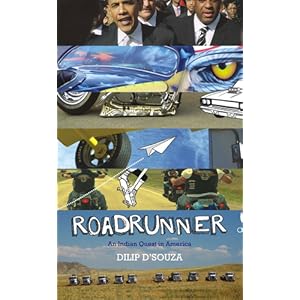It must have been spring of 2007 when I saw the incoming chat on my skype window: Dilip saying hello. A quick call – he’s in the US traveling around. Somewhere near New Orleans if memory serves. He asks me about my own travels and we disconnect pretty soon thereafter. The details of his adventures I would happily follow on his blog as I had since we first met online for a podcast interview some years before.
 Dilip’s blog first caught my attention for both its style and its subject matter. Reading his words I recognized the thoughts of someone who could look critically and creatively at his own home country of India. He would also use this way of comparing specific regions or stretches of road in India, to places he had seen himself or heard about from traveling friends. Even beyond the critical analysis and the historical references, these were the words of a born traveler.
Dilip’s blog first caught my attention for both its style and its subject matter. Reading his words I recognized the thoughts of someone who could look critically and creatively at his own home country of India. He would also use this way of comparing specific regions or stretches of road in India, to places he had seen himself or heard about from traveling friends. Even beyond the critical analysis and the historical references, these were the words of a born traveler.
Over the course of 2010 I traveled with his book in my backpack. Through Siberia and Mongolia, hanging out in Vienna or Lisbon, on those sleepless nights in Tokyo, and when Kabul would go almost completely dark, I would slowly read and re-read chapters from Roadrunner.
I say slowly because having been raised on computers and the internet, I take forever to consume a book. But I say read and re-read because each chapter in Roadrunner is itself a story. One that I might tell a friend over dinner, or try to re-create on my next trip back to the US.
 Just like the writing style that I’ve long enjoyed on his blog, in his book Dilip combines stories from traveling in the US with stories from India. Two lands that on the surface are often said to be very different, but looking at it through his eyes, there is no shortage of similarities. And just as one can point out the social-political problems in India and the US, Dilip also constantly describes beauty that both places share.
Just like the writing style that I’ve long enjoyed on his blog, in his book Dilip combines stories from traveling in the US with stories from India. Two lands that on the surface are often said to be very different, but looking at it through his eyes, there is no shortage of similarities. And just as one can point out the social-political problems in India and the US, Dilip also constantly describes beauty that both places share.
Being that my own specialty and passion revolves around human stories, Roadrunner had my undivided attention with each unique individual Dilip would run into as he rambled into yet another forgotten American town. Good and bad experiences alike, his words taught me new things about the very country I was born and raised in, while also showing me things about a land I greatly admire and wish to visit one day soon – India.
When all is said and done, in Roadrunner, the never idle traveler in me immediately recognized the wandering words of another fellow traveler; tired, full of stories, and already thinking about the next adventure.
 John Aravosis is annoyed. For him and millions of Obama supporters who believed in the campaign that swept the current president into office, there is a great feeling of disgust with what has happened over the past year. What happened? On issue after issue, causes that were very clearly indentified as goals once Obama got into office, the white house has backed down. As John breaks it down, they don’t even back down, they simply do not fight, despite having said they would.
John Aravosis is annoyed. For him and millions of Obama supporters who believed in the campaign that swept the current president into office, there is a great feeling of disgust with what has happened over the past year. What happened? On issue after issue, causes that were very clearly indentified as goals once Obama got into office, the white house has backed down. As John breaks it down, they don’t even back down, they simply do not fight, despite having said they would.